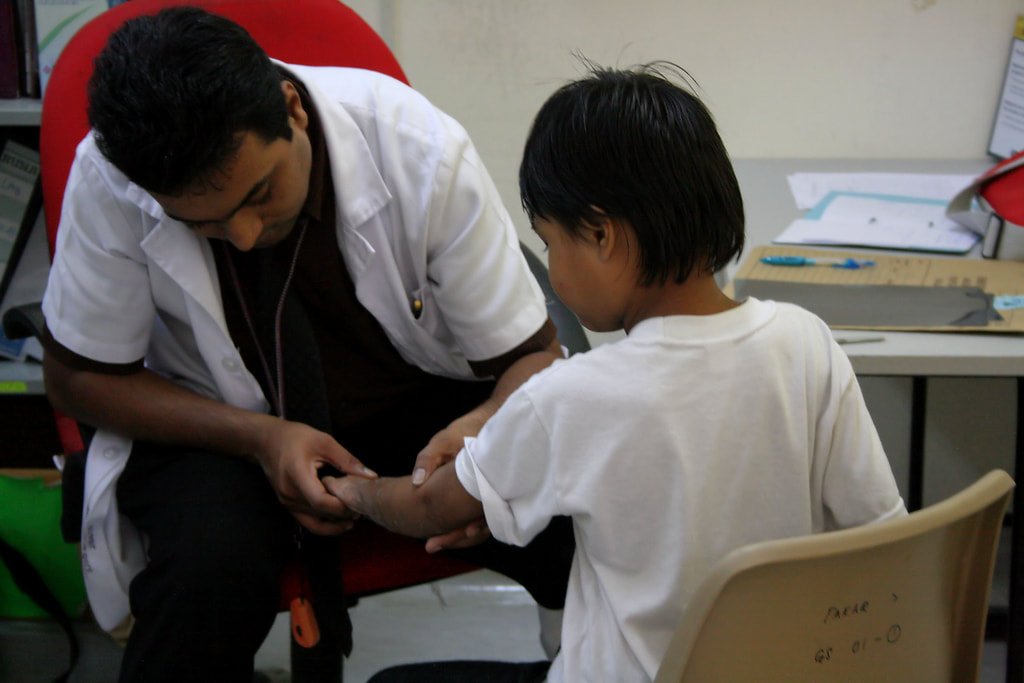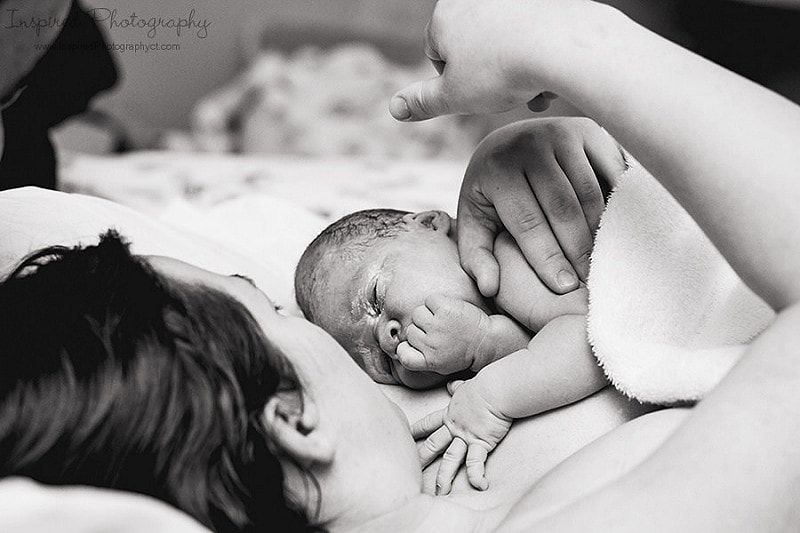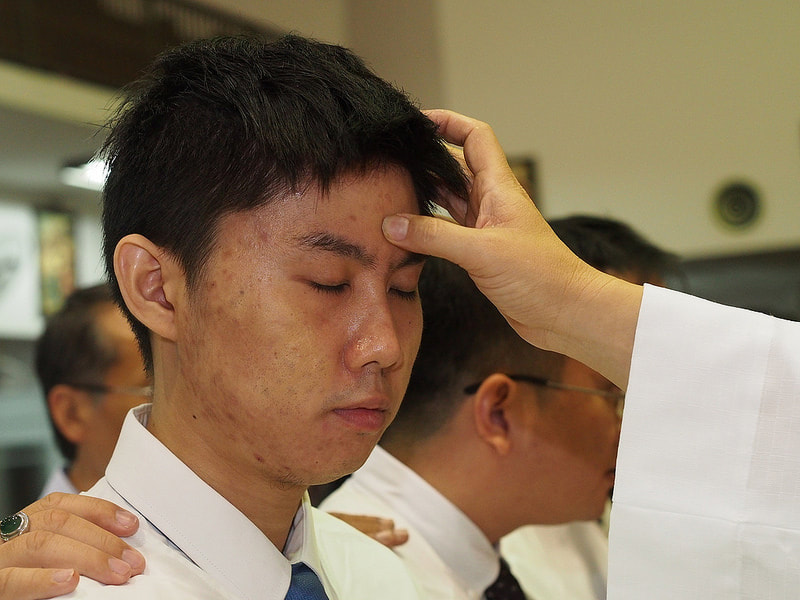- Home
- Process Worldview
- Community
- Art and Music
- Whitehead and Process Thinking
- Podcasts
- Spirituality
- Ecological Civilization
- Education
- Contact
- Social Justice
- Science
- Animals
- Sacred Poems
- Whitehead Videos
- Index of All Titles
- Practicing Process Thought
- Process Spirituality: A Spiritual Alphabet
- Recent Posts
The Power of Touch:
A Brief Meditation on Luke the Evangelist
by Teri Daily
|
October 18th is the day set aside in the church calendar for the Feast of Saint Luke the Evangelist. The tradition naming Luke as a physician finds its root in Colossians 4:14, where Luke is referred to as the “beloved doctor.” But he is best known for his eloquent account of Jesus’ life and that of the early Church.
Being a physician who became a priest, I have a soft place in my heart for Luke – physician turned evangelist. I was surprised to find that when I left medicine, the thing I missed most was touch; it was using my hands. My hands had their own knowledge; they knew their own rituals. Now I’ve replaced the rituals of a newborn exam with the rituals of communion, but I see them both as sacred. One look at the newspaper tells us that touch is not inherently good or bad. It can carry both tenderness and violence. In the right circumstances, touch can be healing and powerful, regardless of its diagnostic or interventional success. It’s something the Church has always known—no wonder all the sacraments incorporate touch in one way or another. The celebrant must touch the water of baptism as it is blessed, and makes the sign of the cross with oil on the forehead of the one who is baptized. During Eucharist, the celebrant must touch the bread and wine as they are blessed, and skin inevitably meets skin at least a little as bread is placed in eager hands. The marriage ceremony is marked by the joining of right hands—and ordination, confirmation, reconciliation, and healing by the laying on of hands. Perhaps the touch of Luke the doctor communicated as much grace as did the words of Luke the evangelist. Disembodied word has a shallowness to it—it floats away without effecting any change at all. Jesus’ own ministry was anything but disembodied. With every healing proclamation of the gospel he gave a bit of himself away—a touch to the leper, a piece of the hem of his garment to the woman who had suffered through twelve years of hemorrhaging, his outstretched hand to Jairus’ dead daughter along with the words “Child, get up!” Until at last he had given all he had, his broken body an offering for the life of the world. On the Feast of Saint Luke the Evangelist, we are reminded that gospel and healing, word and body, are forever intertwined. God’s healing love needs a body on earth. May that healing instrument be us. |



